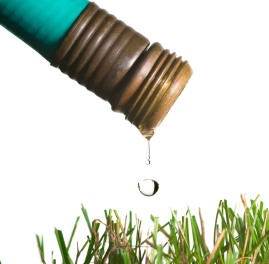Healing A Pinched Nerve
Neck and Shoulder
Here's the thing with healing a pinched nerve.
Pinched nerves don't need 'healing'. Pinched nerves need to stop being pinched.
It's also important to know whether or not you have a pinched nerve, as opposed to just having something painful that is mistakenly called a pinched nerve.
I see this a lot with neck pain:
"Oh, I have a pinched nerve."
"How do you know you have a pinched nerve?"
"Because my neck really hurts, I can barely move it!"
That's not a pinched nerve (even though chiropractors like to call it that).
That's muscle tightness. Extreme maybe, but it's just a muscle tightness dynamic.
A bulging or ruptured disc is not what we're talking about here. The concept still applies to that, but disc issues are an entirely different conversation.
Healing A Pinched Nerve
What Is A Pinched Nerve?
What is a pinched nerve?
A pinched nerve is a nerve that is being compressed.
Nerve can be compressed anywhere by tight muscles and/or constrictive connective tissue, or it can be compressed right at the spine where nerves exit.
Prevailing 'knowledge' says that if you are having pinched nerve symptoms then you are at risk for nerve damage.
-Maybe- if it's a SERIOUS pinch, where there is significant compression and major numbness and motor-sensory issues.
-Maybe- if the nerve is compressed for LONG periods of time. Like years.
I've worked with Carpal Tunnel sufferers who had numbness and weakness for years, a decade even, and in a session or two their numbness goes a way and feeling comes back. Sometimes this comes back fast, sometimes it takes a short while.
It's not high tech though. More on how to take pressure off a nerve down the page.
Make sure that you understand the Tendonitis dynamic. See: What Is Tendonitis? to fully understand how tendonitis works, and how it can both lead to a pinched nerve and/or result from getting a pinched nerve.
Healing A Pinched Nerve
Pinched Nerve Symptoms
Pinched nerve symptoms and treatment is pretty simple.
Pinched nerve symptoms are easy to identify. Pinched nerved treatment is straightforward.
If you have a pinched nerve in the neck, and/or a pinched nerve in the shoulder, then you can have numbness and/or tingling down the arm, or shoulder numbness/tingling, or pain in the shoulder and/or upper and/or lower arm whose source can't be identified by palpation (poking and prodding around).
Sometimes these pinched nerve symptoms look like Tendonitis Symptoms of Tendonitis.
This usually looks like "My arm hurts right in here...," -pokes around trying to find it- "But I can't put my finger on it." That's referred pain, or pain from a pinched nerve.
Pinched Nerve Symptoms:
* Numbness
* Tingling
* Pain of various sorts in various locations, depending on what's going on in there.
Carpal Tunnel Syndrome and symptoms can be PURELY a function of a pinched nerve up at the neck and/or shoulder.
NOT pinched nerve symptoms:
Most people wake up with a crink in their neck or shoulder, have pain that won't go away, even severe muscle pain and/or inability.
You know what I'm talking about. We've all been there.
* Mild to Severe Neck Pain
* Mild to Severe Neck and shoulder pain
* Mild to Severe range of motion limitation
This is a dynamic of muscles going into chronic spasm. True, this can pull on vertebrae and create more pain, but generally, the cause of this 'pinched nerve' pain is muscle spasm that won't let go.
The ONLY way to have a 'pinched nerve' in the shoulder is to have tight muscles compressing the nerve.
So you can see that healing a pinched nerve really isn't about 'healing'. It's just about taking the pressure off the nerve to make pinched nerve symptoms go away.
How do you do that?
Healing A Pinched Nerve
Take The Foot Off The Hose
When you step on a hose, the flow of water stops.
When the flow of water stops, do you take it to a doctor for surgery?
No. You just take your foot off the hose.
Same thing with healing a pinched nerve. You just have to take the foot off the hose.
This may, of course, be easier said than done, depending on your exact situation.

If you have numbness and pain from a pinched nerve:
If you have pinched nerve in neck symptoms of pain, inability to move the neck, numbness and tingling down the arm, then you should:
1. Make sure you are gettting enough Magnesium. Magnesium deficiency can keep you in pain and spasm.
2. Ice the area with an ice pack, 5 minutes on, 5 minutes off, as often as you can. Icing creates circulation and reduces the Process of Inflammation that kicked in even before you were feeling pain.
3. Keep the neck moving, tiny little motions. This keeps the structure from 'freezing' up.
4. Massage. Reach over and rub the area for a minute as often as you can thorughout the day. Jueep squeezing the sponge, over and over.
Pinched nerve symptoms in the shoulder too?
Do #1-4 above. Like I said, it's not high tech.
Healing a pinched nerve is as simple as taking the foot off the hose. You may have to keep at it for a while until your body gets back with the program, but it's not complicated.
Return to the top of this Healing A Pinched Nerve page.
Go to the main Tendonitis page.
Go to the TendonitisExpert.com homepage.
